The Next Chapter for Michelle Wright
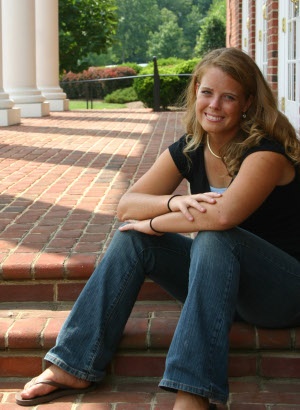 In the spring and summer of 2010, Michelle Wright spent a difficult and eventful six months in India, helping Emmanuel Hospital Association in Lalitpur, Uttar Pradesh, to construct a palliative care policy to treat that country’s most desperately ill. Her work among some of the planet’s most impoverished villages put her in close daily contact with children and adults suffering from highly infectious, often terminal, sicknesses, and resulted in her enduring repeated bouts of malaria and other life-threatening infections. Back at Patrick Henry College in the fall, Michelle completed her studies, earned a degree in Government, and received special recognition at the recent commencement ceremony with two special awards: The Alumni Association Award and the Government Award, for her humanitarian work, excellent academics, and humble, giving spirit. In the following Q&A, Michelle, nearly one year removed from her Indian internship, reflects on what the experience taught her and shares what new adventures lie ahead.
In the spring and summer of 2010, Michelle Wright spent a difficult and eventful six months in India, helping Emmanuel Hospital Association in Lalitpur, Uttar Pradesh, to construct a palliative care policy to treat that country’s most desperately ill. Her work among some of the planet’s most impoverished villages put her in close daily contact with children and adults suffering from highly infectious, often terminal, sicknesses, and resulted in her enduring repeated bouts of malaria and other life-threatening infections. Back at Patrick Henry College in the fall, Michelle completed her studies, earned a degree in Government, and received special recognition at the recent commencement ceremony with two special awards: The Alumni Association Award and the Government Award, for her humanitarian work, excellent academics, and humble, giving spirit. In the following Q&A, Michelle, nearly one year removed from her Indian internship, reflects on what the experience taught her and shares what new adventures lie ahead.
First, Michelle, how's your health? Did that marathon ordeal in dismal health conditions leave you with any lingering symptoms?
I actually feel really fortunate on this account. India was a marathon health ordeal. We just don’t have any immunity to so many of the diseases there. Having been treated for malaria, a really bad spider bite, parasites, and more eye infections than I remember, I was definitely aware that I could spend a lot of the semester pretty sick. I am thrilled to report that with the exception of some “on again, off again” parasite issues, I had a great semester. I have learned that I will never be able to donate blood in the United States, but that is the only lasting health consequence. I even went to the doctor this week and got the “all clear” sign. I know that it could have been so different and I am grateful for the ways that God has provided for my every need.
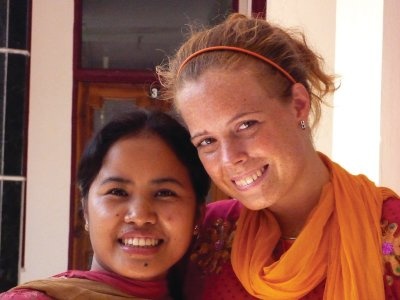 Nine months after your return, how has that Indian internship experience impacted you, your worldview, and your view of your role as a Christian in the world?
Nine months after your return, how has that Indian internship experience impacted you, your worldview, and your view of your role as a Christian in the world?
I think that one of my biggest “take-aways” from my experience in India has been the compassion of God’s heart. I would sometimes stand on the platform of a chaotic, packed train station and just wonder, “What is it like for God to watch 1.2 billion of his people live without knowledge of his existence?” More than anything, India helped me understand just how much God longs for people to turn from their practices of gender-selected abortions and their insistence on worshipping man-made gods. I am convinced that spiritual blindness breaks God’s heart.
I think, too, that I gained a special urgency for working in a medical field designed to reach those with terminal diseases. For me, I never found it difficult to watch someone die. This might sound harsh, but in some cases, death really appeared the merciful option when a patient was forced to bear constant, unimagined pain without any relief. For me, the hardest part was watching a patient pray to the angry, mean, uncaring Hindu gods while on their deathbed. Truly, the greatest tragedy in a person’s life is first living and then dying without knowledge of Jesus.
When Jesus looked out into the field and commented to his disciples that "The harvest is plentiful, but the workers are few,” he could easily been talking about India. The world is aching to hear the Gospel but there are few that are willing to go or even speak up in their own communities. Returning from India, I understand more than ever that Christianity is not about denominations, secondary doctrines, and the petty issues that separate Christians. There are too few of us as it is for us to disagree. Instead, we have an urgent responsibility to bring the light and hope of Jesus to a world that has not been privileged to know what we do.
Have any particular opportunities materialized as a result of the experience or the coverage it received?
My experiences in India opened my eyes to so many of the challenges abroad. As such, I really have been privileged to share some of the lessons I learned and the things that I observed with friends, church groups, and others. With (PHC Journalism professor) Dr. Sillars’ help I wrote an article on India’s gender-discrimination issues and was able to get it published in WORLD Magazine. God really used the article to touch people’s hearts, and I received so much positive feedback from it. I never anticipated this, but I was able to use that article to increase awareness about the problems in India and direct other Christians to pray, donate to, and support the small group of our brothers and sisters in India.
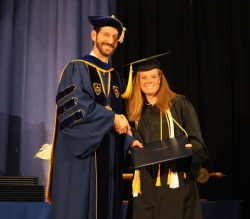 Would you encourage other students to follow in your footsteps? If so, why?
Would you encourage other students to follow in your footsteps? If so, why?
I certainly hope that other students look for opportunities to intern or work abroad. From an educational perspective, traveling abroad opened my eyes to the importance of understanding the global atmosphere of our world. Our generation must understand how to operate in a world that is diverse and internationally oriented. While I was traveling around India working on this development project, classes like International Relations, Politics of Developing Nations, International Economics, and so many others came alive. It’s so hard to understand the effects that the world has on our own country and political decisions until you have spent time abroad.
From a spiritual perspective, it is so encouraging and eye-opening to live among the body of Christ in another country—especially one where the Gospel is highly discouraged. My faith was challenged as I watched my Indian peers dedicate every minute of their free time to praying, visiting the sick, organizing Bible studies in the slums, and planning youth revival meetings. Indian young people know what it means to urgently spread the Gospel. Spending a few weeks abroad on a short-term mission trip is great! But there is something especially meaningful about dedicating a longer period of time to live in a foreign community for the purpose of using your resources and abilities to make a difference in the lives of others. As American Christians, we struggle to understand what it means to have a heart for the lost.
What is next for you? Can you share what the next year looks like?
In a week I am moving down to Nashville, TN, where I will spend at least the next two years teaching in a low-income (most likely inner-city) school. I have signed on a two-year commitment with Teach for America and am thrilled about the prospect of using my education to make a difference in one of America’s forgotten schools. I have said this before, and it is true: I do not necessarily support America’s public education system, but I am convinced that there are too many young lives at stake for Christians to conclude that impoverished public schools are not the place for us.
Any final thoughts on your time at PHC?
In a recent conversation with a fellow graduating senior, I expressed my realization that, if possible, I was leaving PHC with even more optimism and excitement than I had four years ago. I love PHC and will be forever grateful for the professors who chose to invest in my life. PHC has taught me to write, given me a network of friends that I intend to know for the rest of my life, and offered a spiritual environment that has revolutionized my relationship with the Lord. Although I am ready to move on to another set of challenges and opportunities, I leave with mixed emotions. I will miss this place!!
Michelle Wright's Journey Continues in Nashville's Inner City
May 22nd, 2012
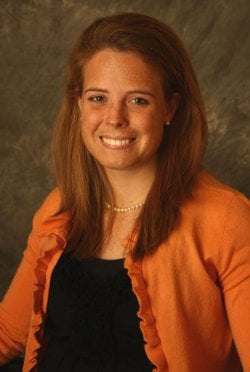 During Michelle Wright’s time at PHC, she spent a turbulent six months of humanitarian work in India, during which she suffered from malaria and a host of life-threatening illnesses and hardships. After being honored during PHC’s Commencement 2011 with both the Alumni Association Award and the Government Award for her humanitarian work, excellent academics, and humble, giving spirit, she set off to Nashville, TN., to work with Teach for America, which sends young leaders into impoverished schools to help make a lasting impact. Today Wright (Government, '11) teaches seventh and eighth grade math to public school students in Nashville’s inner-city, yet another intensely demanding adventure on humanity’s fringes that has, at times, been as frightful as it has been fruitful. Having worked with Teach for America for nearly a year, Michelle took time to update us on her life since graduation.
During Michelle Wright’s time at PHC, she spent a turbulent six months of humanitarian work in India, during which she suffered from malaria and a host of life-threatening illnesses and hardships. After being honored during PHC’s Commencement 2011 with both the Alumni Association Award and the Government Award for her humanitarian work, excellent academics, and humble, giving spirit, she set off to Nashville, TN., to work with Teach for America, which sends young leaders into impoverished schools to help make a lasting impact. Today Wright (Government, '11) teaches seventh and eighth grade math to public school students in Nashville’s inner-city, yet another intensely demanding adventure on humanity’s fringes that has, at times, been as frightful as it has been fruitful. Having worked with Teach for America for nearly a year, Michelle took time to update us on her life since graduation.
What led you to become involved with Teach for America?
I never, in a thousand years, imagined that I would become a teacher. I majored in International Politics and Policy at PHC and actually came very close to completing the Journalism major. The short explanation to landing my first out-of-college job as a seventh and eighth grade math teacher is God.
The longer answer: my parents started foster care when I was in high school. I loved growing up in a fluid family and will always have a heart for inner-city kids. I knew that I would get back to the inner city; I just never thought that I would go back as a teacher, or so soon! Last spring, in the middle of searching for jobs, my roommate, Susanna Foote, and I decided to apply together. Teach for America allows you to “highly prioritize” seven cities [you would wish to teach in]. After choosing six cities where I had friends and family, I decided to put down Nashville for the country music. God opened all of the doors for me to move down to Nashville and I just knew that—though it was not completely logical—this was where I was supposed to go. It’s like Isaiah said: “You will hear a voice behind you saying, ‘This is the way. Walk in it!’”
 What are some of the biggest challenges that you have faced?
What are some of the biggest challenges that you have faced?
Teaching in an urban school has been my most challenging adventure to date. Our kids are years behind academically, and many have at least one parent in jail. Another teacher and I were actually counting the other day and realized that, out of our nearly 400 seventh and eighth graders, we could only think of ten kids that lived with both parents. All ten were immigrant kids. We estimate that at least one-third of our students are already sexually active (becoming a "baby daddy" is a big rite of passage for our kids). And my days are filled with a fair share of fights and drama.
Initially, I found it really challenging to earn the respect of the students. All teachers at my school will agree: our students will only work for teachers that they like and respect. On my first day of school, most of the kids thought that I was a student. They couldn’t understand why I would teach in their school, and they had little respect for anything I said.
By the end of the second week, I adopted a deaf ear to being cussed out, and was just grateful for having a slightly easier time than the teacher across from me. She had to go to the doctor after being repeatedly punched in the face by a student. To be honest, I barely remember the first couple of months. I think I have just tried to forget.
But you know, I would not trade this experience for anything. A veteran teacher encouraged me to coach sports at the beginning of the year, and it was the best advice she could have given me. After I coached a season of soccer, followed by a season of cheerleading (which meant attendance at every basketball game), the kids decided that they liked me. As any teacher in my school will admit, our students are very comfortable failing and will only work for teachers that they like. I almost cried the first time one of my male students shoved another boy into the lockers shouting, “You can’t talk to her like that! That’s MY teacher!” It still makes my whole face smile every time I have a kid stand up for me instead of against me. Now that we have moved past the initial rough months, my students have made amazing progress and are outperforming veteran teachers' students. That part of it has brought out my competitive side, and I love it!
At some point, the kids realize that you love them. After I endured weeks of abuse and disrespect, my students started to write me little notes that said things like “I like math because I know that you believe in me” and “I like coming to school because you work really hard to make me successful.”
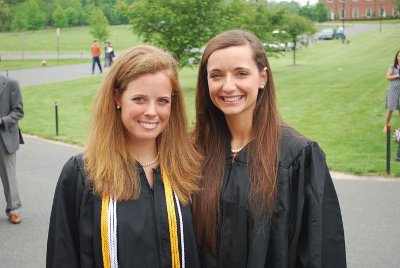 How does your inner-city experience compare with India?
How does your inner-city experience compare with India?
Both experiences were hard, but I think that teaching in a rough school has more pressure. Every day, I wake up to the reality that a high percentage of my students will drop out of school before high school. Although I am only one teacher, I am convinced that just one teacher can make that difference for some of our kids.
What experiences in your inner-city work have particularly impacted you? Have your presuppositions changed? What have you learned?
One of the biggest lessons that I have learned this year is the importance of taking every opportunity to get to know the kids as individuals. As the year has progressed, I have realized that most of our worst-behaved kids act the way that they do for a reason. For example, it’s not shocking that a kid with both parents in jail finds it hard to focus on school. He’s got bigger things on his mind. Once kids know that you care about the things that they care about, they are much more willing to attempt to value the things that you do. Instead of addressing the actions that I see, I have learned to ask more questions and try to understand.
As a Christian, I am convinced of my responsibility to see our kids the way that Jesus does. He sees their hurts, disappointments, distrust of adults, frustrations, and rage with compassion and a broken heart. He longs to be in relationship with the kids and has entrusted me with the privilege of showing Himself to them.
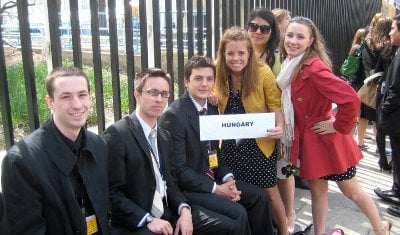 What is the place of Christians in the public education system?
What is the place of Christians in the public education system?
As in any place of work, I am convinced that Christians have a responsibility to speak about their beliefs and share the Gospel with anyone who will listen. The students in our public schools are the next generation of athletes, parents, employees, and leaders. I think that far too many Christians have concluded that public schools are beyond redemption.
The best part about working in an urban school has been the opportunities that I have found to share the Gospel with the kids. I am 100% convinced that a relationship with Jesus is the only thing that will enable our students to "break out" of the ghetto. Although I was a little bit cautious about sharing my faith in a public school back in the fall, I have since become almost reckless about it. At Christmas, I gave every one of my 112 students a Christmas gift with a Bible verse tied on it. I leave my Bible on my desk all the time, and have told the kids that they are welcome to ask me about that at any time. Several students now attend church with me, and I am trying to find a way to get them to youth group midweek. My involvement with sports gives me a fair amount of time in the car with some of our student athletes, and they know that I am the teacher to bring up hard topics, like Jesus, marriage, integrity, college, etc. I have been blown away by how receptive the kids are to the truth and the uncompromising stand that I take on some of the issues of their culture. It is like that verse says! The harvest, indeed, is ready, but the workers are few.
Teachers often spend more time with kids than parents do. If I am not there to share my values and beliefs with the kids, someone else is going to be sharing theirs. Our students are usually talked to, but few adults take the time to talk with them. Every time I introduce a serious topic with one of the kids, they are so willing to listen. They often tell me, “You might be right, but you are the only one that thinks that!” These kids need more people who are willing to enter their lives, attend their sports games, take them to church, and show a genuine interest in them. Who should be more willing to step up to that than the body of Christ?
In the context of your inner-city work, what advice would you give to current PHC students (or students in general), especially those looking to become teachers?
I would definitely encourage anyone who is interested in teaching to consider giving a few years to work in an urban school. The time will change you. It’s really hard! But coming out of PHC, God has blessed us with so much—a Christian community, an education, and so many opportunities. It really is a privilege to pass some of that blessing on to God’s children.

